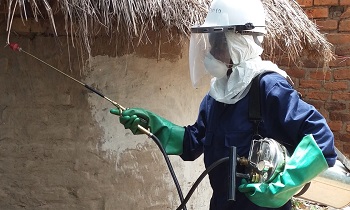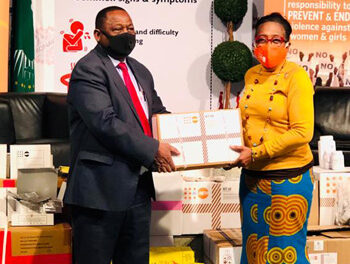
Indoor residual spraying campaign to combat malaria to target 21 endemic districts

The Ministry of Health and Social Services (MHSS) will officially roll out the indoor residual spraying (IRS) campaign in 21 targeted malaria-endemic districts, an official said this week.
The IRS campaign is conducted yearly between September and December, just prior to the start of the rainy season and the malaria peak season, the Health Ministry executive director, Dr. Ben Nangombe said.
“IRS focuses on areas where the inhabitants at risk live and sleep in sprayable structures provided there is evidence that mosquitoes feed and tend to rest indoors. IRS involves spraying insecticides on the inside walls of homes to kill malaria-transmitting mosquitoes, thus providing protection for community members residing in sprayed areas,” he added.
This year, the targeted IRS activities will be conducted in nine regions namely; Ohangwena, Oshikoto, Kavango East, Kavango West, Otjozondjupa, Omusati, Kunene, Oshana and Zambezi, Nangombe said.
“While Namibia has achieved a remarkable decline in malaria cases in the past decade, many people are still at risk of acquiring malaria and we all need to play our part in moving Namibia closer to its goal of malaria elimination by 2023,” he said.
In 2020, Namibia recorded over 13,600 confirmed malaria cases and over 40 malaria deaths, with the regions of Kavango East, Kavango West, Ohangwena and Zambezi collectively accounting for over 85% of these cases and deaths.












































